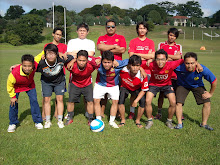 Education is one of the important thing in life that need to treasure and find ....!!!!!!
Education is one of the important thing in life that need to treasure and find ....!!!!!!
What is education, knowledge in basic skills, academics, technical, discipline, citizenship or is it something else? Our society says only academic basics are important and that is based on collecting knowledge without understanding its value. How about the processing of knowledge, using inspiration, visionary ambitions, creativity, risk, ability to bounce back from failure, motivation? Most education institutions don’t consider these skills. These skills are associated with understanding the value of knowledge. There is a huge disconnected gap and this is a problem for high school students in particular.
What is education? The answer is, all elements in the opening paragraph and more, relate to education and all should be considered. This would be ideal and sounds good, but "all" is not possible where performance must be measured. Only what can be measured will be selected and the measuring tool is the written test. Anyone who does not have the ability to put clear thoughts on paper is labeled a failure. All natural skills, including knowledge processing, does not count. The fact is, what is exercised grows stronger, what is ignored stays dormant. The classroom exercises the collection of academics, leaving all other natural skills in the closet.
Primary education
Main article: Primary education
Secondary education
Main article: Secondary education
In most contemporary educational systems of the world, secondary education consists of the second years of formal education that occur during adolescence.[citation needed] It is characterised by transition from the typically compulsory, comprehensive primary education for minors, to the optional, selective tertiary, "post-se condary", or "higher" education (e.g., university, vocational school) for adults.[citation needed] Depending on the system, schools for this period, or a part of it, may be called secondary or high schools, gymnasiums, lyceums, middle schools, colleges, or vocational schools. The exact meaning of any of these terms varies from one system to another. The exact boundary between primary and secondary education also varies from country to country and even within them, but is generally around the seventh to the tenth year of schooling. Secondary education occurs mainly during the teenage years. In the United States and Canada primary and secondary education together are sometimes referred to as K-12 education, and in New Zealand Year 1-13 is used. The purpose of secondary education can be to give common knowledge, to prepare for higher educatio n or to train directly in a profession.
Main article: Higher education
Higher education, also called tertiary, third stage, or post secondary education, is the non-compulsory educ
ational level that follows the completion of a school providing a secondary education, such as a high school, secondary school. Tertiary education is normally taken to include undergraduate and postgraduate education, as well as vocational education and training. Colleges and universities are the main institutions that provide tertiary education. Collectively, these are sometimes known as tertiary institutions. Tertiary education generally results in the receipt of certificates, diplomas, or academic degrees.
Higher education includes teaching, research and social services activities of universities, and within the realm of teaching, it includes both the undergraduate level (sometimes referred to as tertiary education) and the graduate (or postgra
duate) level (sometimes referred to as graduate school). Higher education in that country generally involves work towards a degree-level or foundation degree qualification. In most developed countries a high proportion of the population (up to 50%) now enter higher education at some time in their lives. Higher education is therefore very important to national economies, both as a significant industry in its own right, and as a sour
ce of trained and educated personnel for the rest of the economy.
Based on Wikipedia





No comments:
Post a Comment